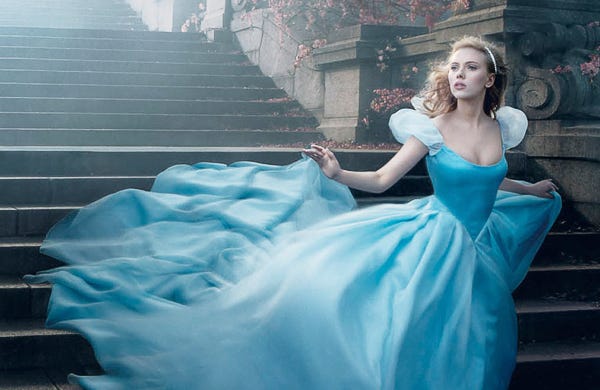So What, Who Cares (vol 2, issue 46) How Gamora and Aurora are interchangeable
Hello!
*
If you've ever wondered why it's so hard to find Black Widow merchandise, there's a concise answer: Disney Princesses. Marvel's owned by Disney, and according to one former Marvel employee:
Disney bought Marvel and Lucasfilm because they wanted to access the male market. To achieve this goal, they allocate less to Marvel’s female demo, and even less to a unisex one. They won’t be interested in changing how they work until consumers understand what’s going on.

Because Disney's got a lock on the female consumer with the princess market (vol 2, issue 36), they're more concerned with getting the parents of little boys to fork over the simoleons for Captain America pajamas. And they've calculated that the people who buy girls' merch will spend that money on Merida or Elsa, so why bother cultivating a fanbase for She-Hulk?
If you read the comments, there's a lot of corroborating stories from design and merchandising professionals regarding how difficult it is to try and get superheroine products into any Marvel products aimed at children.
So what? There are two ways to look at this. The first: "Fie on Disney for perpetuating rigid gender roles!" The second: "What a phenomenal opportunity for non-Disney companies to get licenses for Marvel characters and tap into markets that Disney's not interested in."
Who cares? Parents who are trying to explain to their daughters why they can find T-shirts about dating superheroes but none for "Goodman, Lieber, Kurtzberg, & Holliway.*"
Women who did not get into comics because they adore men with lots of pouches on their belts, but because they liked the stories of Kitty Pryde, Kamala Khan or Jessica Jones.
And companies like Her Universe, which is paving the way for smaller companies to provide licensed clothing and other merch for girls who like fantasy and sci-fi franchises like Marvel Comics or Star Wars, should keep an eye on how to reach the people who don't think Gamora and Aurora are interchangeable.
* For an introduction to She-Hulk -- and who doesn't want to know more about the lawyer-cum-Avenger? -- check out this episode of The Incomparable's Comic Book Club.
*

The rise of the topless mirror selfie is helping to promote social inequality in the U.S. Or so says The Economist, which notes that a plethora of dating apps has led the overwhelmed-yet-looking man or woman to gravitate toward those mobile programs that let the user aggressively filter out would-be candidates and thereby reduce decision fatigue.
(At right: My face, after I googled "topless mirror selfie." Results were not safe for work, life.)
This isn't what causes social stratification, however. As The Economist reports:
Hinge is popular for a simple reason. Online, there are too many choices. Narrowing them down saves time—a blessing for busy young professionals—but at a cost. When the elite date only friends of friends, it is hard for those outside this happy circle to break in.
So what? This is an instance of technology enabling assortative mating, or the premise that like marries like. As Stanford economist Paul Oyer explains:
Just as couples tend to have similar education, couples typically come from similar backgrounds. So not only is it the case that a person with a college education is more likely to have a partner with a college education, but the children of people with college educations are more likely to have partners whose parents have a college education. The similarity of parents’ education and other characteristics among married couples has grown over time, which is probably making a “Pretty Woman” scenario even less likely.
Who cares? Anyone hoping to marry up. The rise of assortive mating has reduced the number of cross-class marriages over the past few decades; there were several headlines last year about how "bosses are no longer marrying their secretaries."
Of greater concern to people who like to develop opinions about trends in American society: assortative mating compounds economic and social advantages for educated, high-earning families. But, as Matthew Yglesias argues, it's not the like-marrying-like that's the real root of inequality in the U.S. The conditions that created Americans' growing income inequality weren't caused by assortative mating; the assortative mating is just an indicator of a larger issue.
*
Your pop culture moment of the day ... will return. I am up to my eyeballs in Day Job stuff this week -- and a few ambitious home improvement projects! Simultaneously! -- and there has been little time for indulging in pop culture.
*
Are there typos? I apologize in advance. The only editing class I did not get an A in was copyediting.
Did you miss an issue of So What, Who Cares? The archive is here.
Would you like a run-down of all the books and other pop culture picks ever mentioned in this newsletter? Then check out the Pinterest board. (Note: None of the links are affiliate links; I do not make money off anything I link to.)
If you really like So What, Who Cares?, tell a friend to subscribe.

